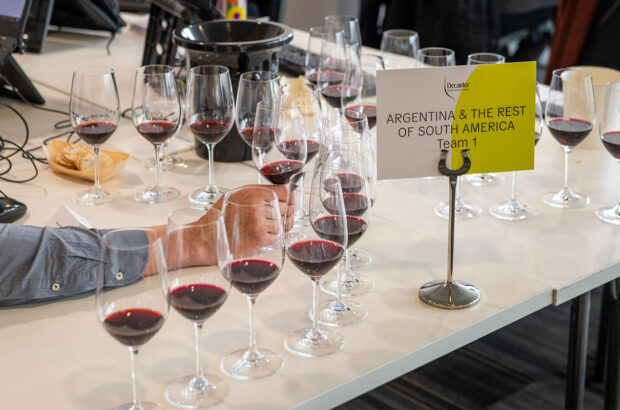A new device that claims to soften tannins in young wine by exposing the juice to ultraviolet light could also help increase the number of wines available for vegans, according to winemakers taking part in early trials.
A Swiss company claims to be offering winemakers a new weapon against harsh tannins and underripe wines.
Some winemakers also believe that the firm’s namesake gadget, Vino Flux, could make it easier to produce vegan wines.
Vino Flux is trialling its namesake device with 150 Australian wineries, and it claims that its UV light rays will soften tannins and speed up the maturation process.
Exposing wine to ultraviolet light can be detrimental to colour, tannin and ageing potential.
But Vino Flux distributor Aldo Bratovic said the Swiss firm had found a way to target red wine tannins by using specific wavelengths in the UV range, without affecting the fruit profile.
Julian Langworthy, winemaker at Deeps Woods Estate in Margaret River and who trialled the new device with Bratovic on Cabernet wines, said that he noticed a clear difference in the treated wines.
‘This technology is exciting for the industry, especially if you need help with wines that have experienced a bad vintage or are from a challenging site,’ Langworthy said.
Flametree Wines winemaker Julian Scott also attended a Margaret River demonstration.
‘We trialled the 2016 reds and found the treatment had little impact on the wine aroma and colour. The treated wine had softened tannins and was less dry – and there was a sweet spot in the treatment process,’ he said.
Not a magic bullet
Winemakers were cautious to endorse Vino Flux as a catch-all, quick fix.
‘The tannins had been polymerised, possibly through the action of UV light energy,’ said Scott.
‘The tannin condensing process is an alternative to fining which inadvertently strips flavour. It’s potentially another tool to assist in making great wines, but it will not replace high fruit quality or good winemaking practices.’
Vegan wines
Juniper Estate winemaker Mark Messenger said, ‘There are other ways to produce similar results with wines to get softer tannins, but if you are a vegan this technology eliminates the need for animal-based protein fining agents so it’s an attractive option for that market.’
Bratovic said that larger wine companies might benefit most.
‘Softening the tannin profile of a young red wine enables it to be released sooner, which is good for cashflow and makes the wine more attractive to consumers.’
He added, ‘Vino Flux works well on ‘problem child’ wines; a wine that has not responded to conventional protein fining and no amount of trial work makes a difference.’
The product remains subject to approval for commercial use in Australia.







